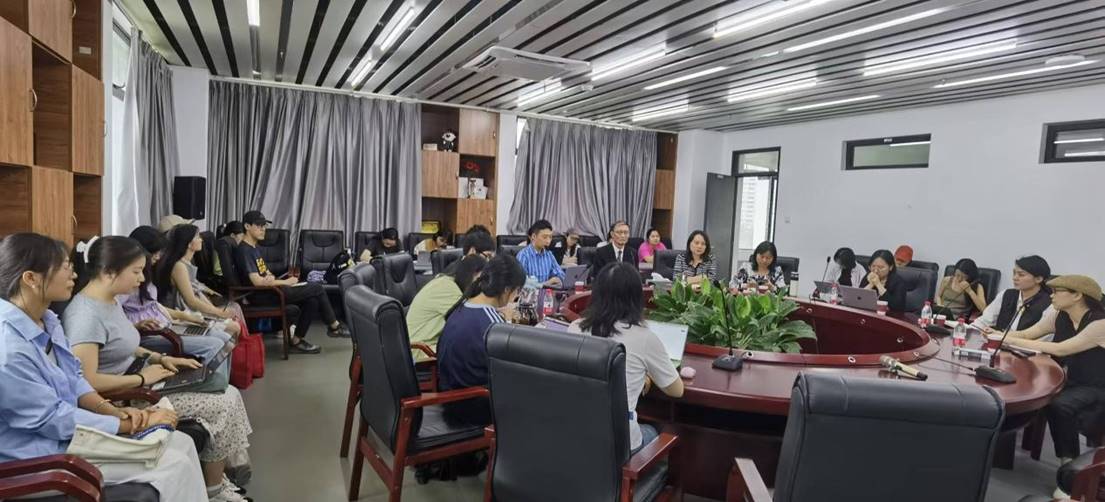On the afternoon of April 25, 2025, the School of Media and Communication hosted an academic lecture titled “National Image Building and Global Communication.” The keynote speaker was Professor Ning Wang, Dean of the Institute of Arts and Humanities at Shanghai Jiao Tong University. The session was moderated by Professor Guang Yang, Associate Dean of the School of Media and Communication, and was well attended by faculty and students.
Professor Yang extended a warm welcome to Professor Wang and highlighted his distinguished academic background. Professor Wang is a leading scholar in the humanities and social sciences and a member of the Academy of Latinity. Renowned for his expertise in globalization studies, world literature, and translation studies, Professor Wang has authored over 20 monographs in Chinese and 5 in English, and published more than 500 research papers in Chinese and 110 in SSCI or A&HCI indexed journals.
In his lecture, Professor Wang emphasized the significance of reshaping China’s national image in an interconnected world. It is essential for enhancing cultural soft power and facilitating international cooperation. He noted that Western media have long dominated global narratives, often leading to misconceptions and biases about China. While acknowledging that some Western perspectives are relatively objective, he also examined the complexity and limitations of foreign perceptions—ranging from oversimplified stereotypes to romanticized fantasies about Chinese culture.
Delving into communication strategies, Professor Wang underscored the critical role of language. He suggested that effectively telling China’s story requires mastering the global lingua franca while preserving the cultural essence of Chinese expression. He also encouraged scholars to produce original and innovative research that enhances China’s discursive presence in global academic discourse.
The lecture concluded with a lively Q&A session. Professor Wang recommended a “transliteration-with-context” approach for translating culturally specific Chinese concepts. In response to questions about academic methodology, he encouraged young scholars to follow global trends, critically examine underlying assumptions, and develop theories grounded in China’s distinct cultural and historical realities.
